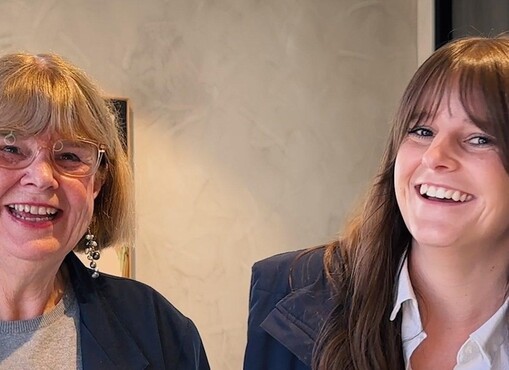- Home
- /
- All blog articles
- /
- What happens to my pension when I am downsizing my home?

What happens to my pension when I am downsizing my home?
One of the many reasons people choose to downsize their home is to free up equity and live a bigger and better retirement. You not only walk away with more money by unlocking equity in your home, but can simplify your life by reducing time maintaining your home, and bringing down utility costs and other bills moving forward. But what are the effects of this potential cash influx on your future finances? Here’s all the information you need to navigate making decisions around downsizing and the pension.
First things first, what does downsizing your home mean?
A home is one of the biggest investments most of us will make, so downsizing your home usually creates an influx of finances, which can have an effect on your pension. We know this can be confusing, so we’ve taken the important bits and broken it down here to help you get the party started.
Pension basics
You may be eligible for government benefits such as the Pension when you retire. The pension and other benefits you're entitled to will depend on your age, assets, and income.
Generally, to be eligible for the Age Pension, you have to:
- Be over 66 years of age, depending on when you were born
- Be an Australian resident and have lived in Australia for at least 10 years
- Have income and assets under certain limits, based on the income and asset tests
Talk income and assets to me
The income test assesses all your income sources, such as:
- Employment wages
- Money received from owning a business
- Investment income, including your super and income created from financial assets, such as savings accounts, managed investments, and shares
Income sources exempt from the test include:
- Rent assistance payments
- Child support
- Emergency relief payments
- Regular payments from a close relative
The assets test takes into account the value of assets you own, such as:
- Cars
- Business assets
- Property (your primary residence is excluded though!)
- Super and retirement income accounts (yours and your partner’s if you have one)- Investments, such as cash, shares, term deposits, and bonds
- Private trusts and private companies- Any deposits towards living in a retirement village or similar
- Prepaid funeral arrangements you might’ve made
- Any significant cash gifts or assets you might’ve given to family members or friends - don’t worry, that cheeky $20 in a birthday card won’t affect things, this is mainly to avoid people gifting property or large sums of money as a financial loophole
How will the sale impact your pension
If you’re sitting pretty living in your own the home, and it’s on less than 2 hectares of land, it won’t be counted as an asset in the assets test. However, owning your home could still affect the rate of your fortnightly pension payment, as the aged pension asset limits are set by the Government and are different for homeowners and non-homeowners.
Once you sell your property, you’re likely to have a lot more money available to you from the equity you’ve unlocked from your home. If you plan on buying another home within 12 months from sale, the money from the sale of your original home that you intend to spend on a new home won’t be counted as an asset for up to 12 months from the date of the sale, or for up to 24 months if you experience delays outside of your control in purchasing a new property, and can prove that you’ve made reasonable attempts to do so.
If you sold your property for $600,000, and had the intention to buy a unit for $450,000, that $450,000 would be considered an exempt asset for 12 months, and the remaining $150,000 would be assessed as part of your assets. Centrelink will also deem that you’re receiving income from the money you received from the sale of your home. Centrelink will assess the deemed income from the $600,000 until you purchase a new property.
*Source: Australian Government Services Australia, as of 20 March 2024.
Gift it to me baby
The rules around gifting and how it works are pretty strict. You can give away any of your assets, including your home, but it could mean that you lose your entitlement to the pension. Centrelink has ‘gifting rules’ that apply hard limits on how much of your assets you can ‘gift’ before your pension will be affected.
Some quick gifting considerations:
- You can gift assets of $10,000 in a financial year, with a cap of $30,000 over a 5 year period.
- Any assets you give away over this amount will be treated as a ‘deprived asset’ for the next 5 years from the date of the gift.
- A “deprived asset” is an asset Centrelink considers as one you’re intentionally depriving yourself of.
- Centrelink will still assess the market value for deprived assets and this will still be included as your asset for the next 5 years.
- Both the asset and any income it’s assumed to create will be taken into account when calculating your pension.
Transferring home ownership for less than market value means Centrelink will consider the property as a deprived asset too. This would affect the results of both the income and asset tests. Depending on the amounts involved, you could put your assets over the maximum threshold for benefits and may lose your pension entitlement. You could also be deemed as receiving income from the deprived asset, which could put you over the limit on the income test as well.
Take advantage of downsizing contributions
If you’re eligible to do so, you can put up to $300,000 into your super fund using the money from the sale of your main residence, regardless of any caps and restrictions that otherwise apply. This is a great way to top up your super and set yourself up for a shiny retirement.
Okay, so how does it work?
First, you have to be eligible to make a contribution from the sale of your home:
- You must be 55 years old or older at the time you make a downsizer contribution
- The home must be in Australia, and have been owned by you or your spouse for at least 10 years. The home can not be a caravan, houseboat, or other mobile home.
- The disposal must be exempt or partially exempt from capital gains tax (CGT) under the main residence exemption.
- You must not have made a previous downsizer contribution to your super from the sale of another home or from the part sale of your home.
- When you make your contribution, or prior to it, you need to provide your fund with the 'Downsizer contributions into super form'.
- You must make your downsizer contribution within 90 days of receiving the proceeds of sale.
Why people love downsizing
Additional funds put towards your super for a bigger and better retirement is just one of the benefits of downsizing real estate. Moving from a larger family home to a downsizer home means you could finally convince your partner that it’s time to part with that collection of paint tins in the shed, and gives you a chance to go through the depths of the cupboards and sort out what you really need. Downsizing also gives you more time, because the less time spent maintaining your property is more time spent on maintaining your new lifestyle. Goodbye weeding, hello wineries!
Downsizing to a Lifestyle Community can be a smart move both financially, and in terms of lifestyle and quality of life. On top of the general benefits of downsizing for retirement, the Lifestyle Communities® model also helps keep life costs as low as possible, with sustainable features and energy efficient appliances in all Lifestyle homes. There’s also no council rates, water rates, or stamp duty, and lower insurance premiums thanks to the safety of a gated community.
If you’re looking to downsize to a bigger life, we’d love to talk to you about what your future could look like with us at Lifestyle Communities®.
*This article provides general information only and should not be relied upon as personal financial advice. Lifestyle Communities® is not a financial adviser and you should consider seeking independent legal, financial, taxation or other advice to check how this information relates to your unique circumstances.


